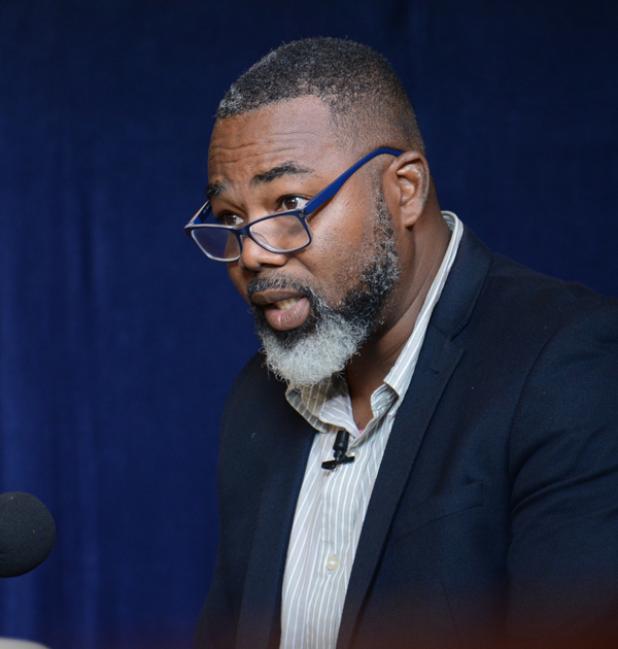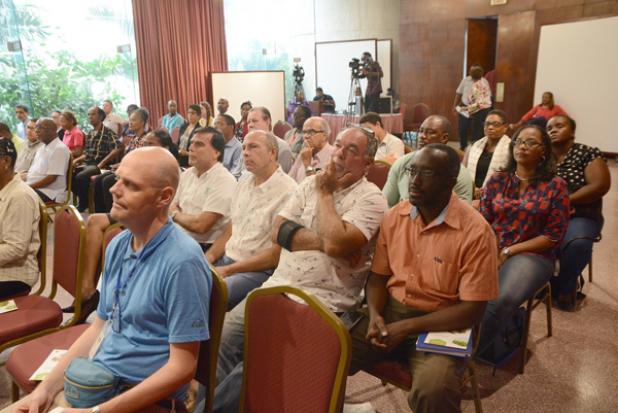
Mark Hill, Industrial Designer at Design Council SIDS.

Some of those in attendance at the ‘Bio-Digestion: Benefits to Barbados’ conference, which was held at The Courtney Blackman Grande Salle, Tom Adams Financial Centre recently.
Shift to renewable energy
Barbados can and will lead in bio-energy.
That’s according to Industrial Designer at Design Council SIDS, Mark Hill, as he revealed that they are in the process of commissioning a 250-kilowatt Chicken Manure Biogas Plant in St. Lucy.
He said also on the cards is a Blue Economy Ocean Plastics to Energy Project, as well as a one megawatt Biogas Facility for food waste and 1.5 megawatts Syngas to begin the journey of bio-energy.
“We can and will lead in bio-energy, in particular the production of biomethane/renewable natural gas, the production of wood pellets, Syngas and we will fully explore the economic potential in these resources in order to meet the goal of 100 per cent renewable energy by 2030 and the Sustainable Development Goals.”
Hill was at the time addressing the opening of the “Bio-Digestion: Benefits to Barbados” conference held at The Courtney Blackman Grande Salle, Tom Adams Financial Centre.
“Bio-energy can significantly contribute to Barbados’ sustainable development, build a more resilient, clean society by producing electricity, heat and cooling. In many cases where this technology is used in Sweden, Finland and other parts of Europe, they use it for district heating, but we propose in the Barbados model that we would use this for district cooling.”
Governor of the Central Bank of Barbados, Cleviston Haynes, described the conference as important, opportune and necessary because the country’s national energy policy is focused on shifting to the use of renewables and cutting reliance on fossil fuels that are currently central to meeting transportation and electricity needs.
“Indeed, Government has announced an ambitious goal of 100% reliance on renewables for energy generation by 2030. It is ambitious because at present, only an estimated 4% to 6% of our energy needs are being met by renewables. It is ambitious because the transition requires significant investments. But ambitious it needs to be, so that we can promote greater energy security, enhance our long-term competitiveness and address the negative spillovers that accompany the use of fossil fuels,” he said, commending the efforts of local agencies such as the Ministry of Energy and Water Resources and the Barbados Renewable Energy Association that have been championing this thrust towards renewables.
Therefore, as Barbados seeks to promote greater stakeholder engagement in this process, Haynes further expressed that it is important to enhance knowledge about how to benefit from alternative energy sources such as solar, wind, hydro, and waste.
“The conference fits neatly into that vein as Mr. Joseph Tesar, President of Quantalux, will help us to better understand how the waste we generate can fit into the new energy mix; how we can turn our organic waste into economic value; and how we can protect a fragile environment and mitigate the risks associated with climate change to which the carbon produced by fossil fuels contributes.
“We must see the shift to renewable energy in the context of leveraging our biological resources, while building resilience; building environmental resilience, financial resilience and economic resilience,” the Governor said.
